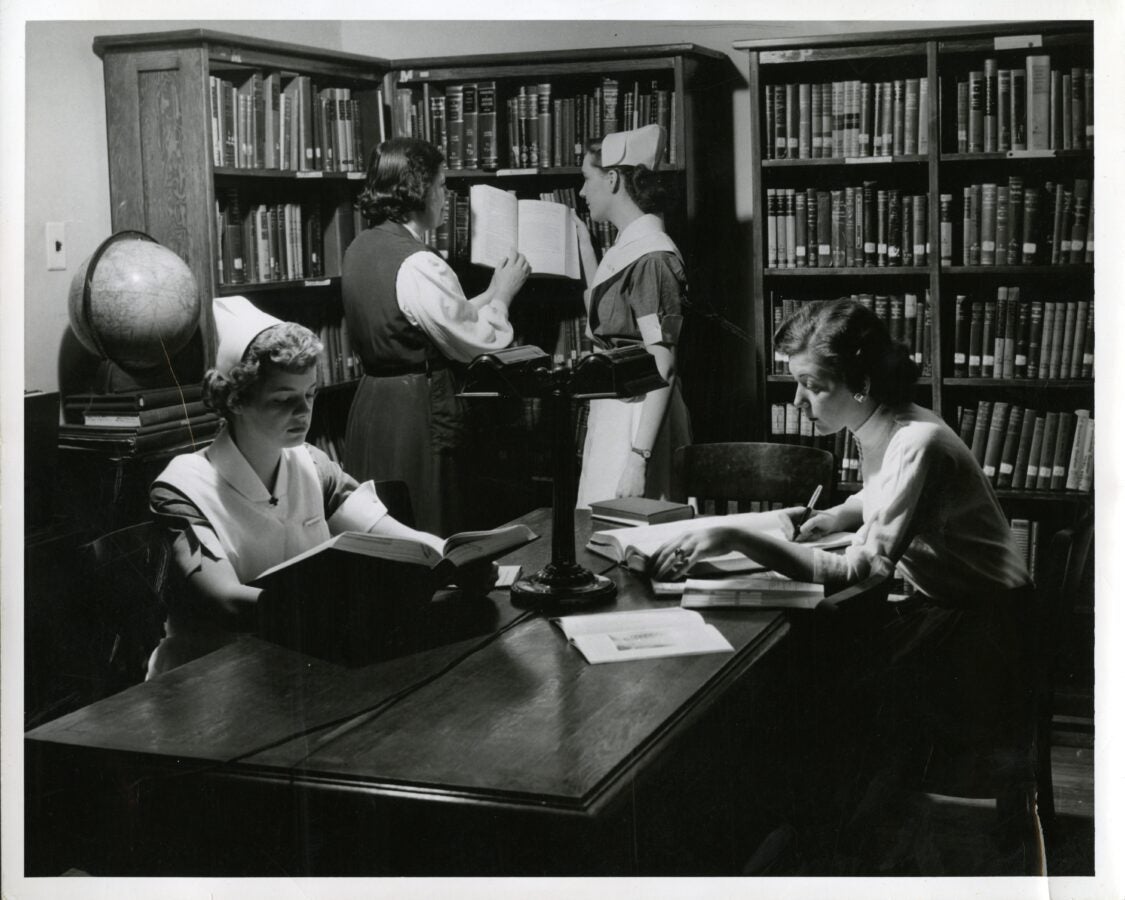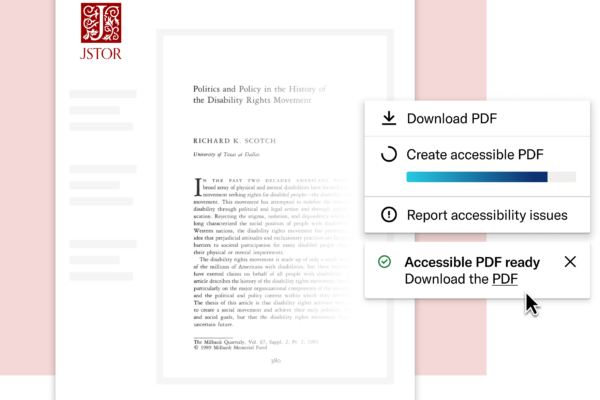
In December, the Coalition for Networked Information (CNI) hosted its biannual membership meeting for the latter half of 2023. These meetings facilitate discussions among member organizations about networked information technologies and resources, with a specific focus on their applications in higher education and research. We (Kevin Guthrie, President of ITHAKA, and Bruce Heterick, Senior Vice President of Open Collections and Infrastructure) represented ITHAKA at the meeting.
In our presentation, we described the outcomes of JSTOR’s three-year Open Community Collections (OCC) program, which offered institutions the opportunity to share their collections on JSTOR. We focused on the pilot program’s benefits, which gave participant libraries increased reach, heightened visibility, and a widened audience base.
Open Community Collections (OCC) program
We explained that the growing preference for digital academic scholarship over physical resources prompted JSTOR to launch the OCC pilot. Its goal was not only to increase the impact of institutional special collections on their campuses and beyond, but also to bridge the gap between primary source collections and relevant secondary literature,
OCC gave libraries the ability to build an infrastructure that supports a transition from print to digital. Portico, ITHAKA’s preservation solution for libraries and publishers, allows libraries to begin making their own collections available to the public through Shared Collections, while JSTOR Forum enables libraries to catalog and manage metadata within their collections.
In the pilot phase, approximately 300 institutions made nearly 1,700 digitized collections available on JSTOR. The aim was to make these collections more accessible for research and teaching purposes, and to enhance the research process by providing primary source collections alongside the existing wealth of secondary literature on the JSTOR platform.
Institutional success
Discovery and reach
Our findings revealed that OCC participant libraries were able to document their shared items on the JSTOR platform, allowing them to be indexed by Google, which maximized the shared collections’ visibility on the open web. It is worth noting that a significant portion—62%— of item requests on JSTOR originate from the open web. Furthermore, 31% of JSTOR’s usage can be attributed to discoveries made through Google. These statistics underscore the importance of digitizing collections and ensuring their accessibility.
JSTOR provides resources to over 13,000 unique institutions across more than 225 countries and territories. The results of ITHAKA’s three-year pilot revealed that libraries that share their collections on JSTOR gain an extensive audience, foster greater inclusivity in academic discourse, and have more global impact by broadening their reach.
OCC participant success stories
Queens College and Skidmore College tapped into JSTOR’s platform to expand their collections’ reach and explore new opportunities.
Queens College has recently made their “Greek News” collection available on JSTOR, sharing over 900 issues of a bilingual newsweekly spanning from 2003 to 2021. The Hellenic American Project curated this collection, whose inclusion on JSTOR has significantly enhanced its visibility and accessibility among readers in Greece.
Skidmore College has strategically leveraged JSTOR’s comprehensive suite of services to preserve its collection. The institution uses JSTOR Forum to create and manage its collections, which ensures a streamlined curation process. The Shared Collections feature facilitates access to these distinctive collections via JSTOR, greatly enhancing their visibility and accessibility. To secure the long-term preservation of these valuable collections, Skidmore employs the Preserved Collections service via Portico. This integrated approach has not only safeguarded their collections for future generations but also expanded their reach to a wider scholarly audience.
Preserve and amplify your collections
Because discoverability and reach are critical, we encourage librarians to contact us to learn more about our suite of services. Beyond making collections more easily accessible worldwide, we are well-equipped through Portico to ensure that collections are safeguarded for future generations.
To get started, please visit our Shared Collections web page and fill out the interest form. Someone on our team will reach out to you to learn more about your particular needs and how we are positioned to support your library.



